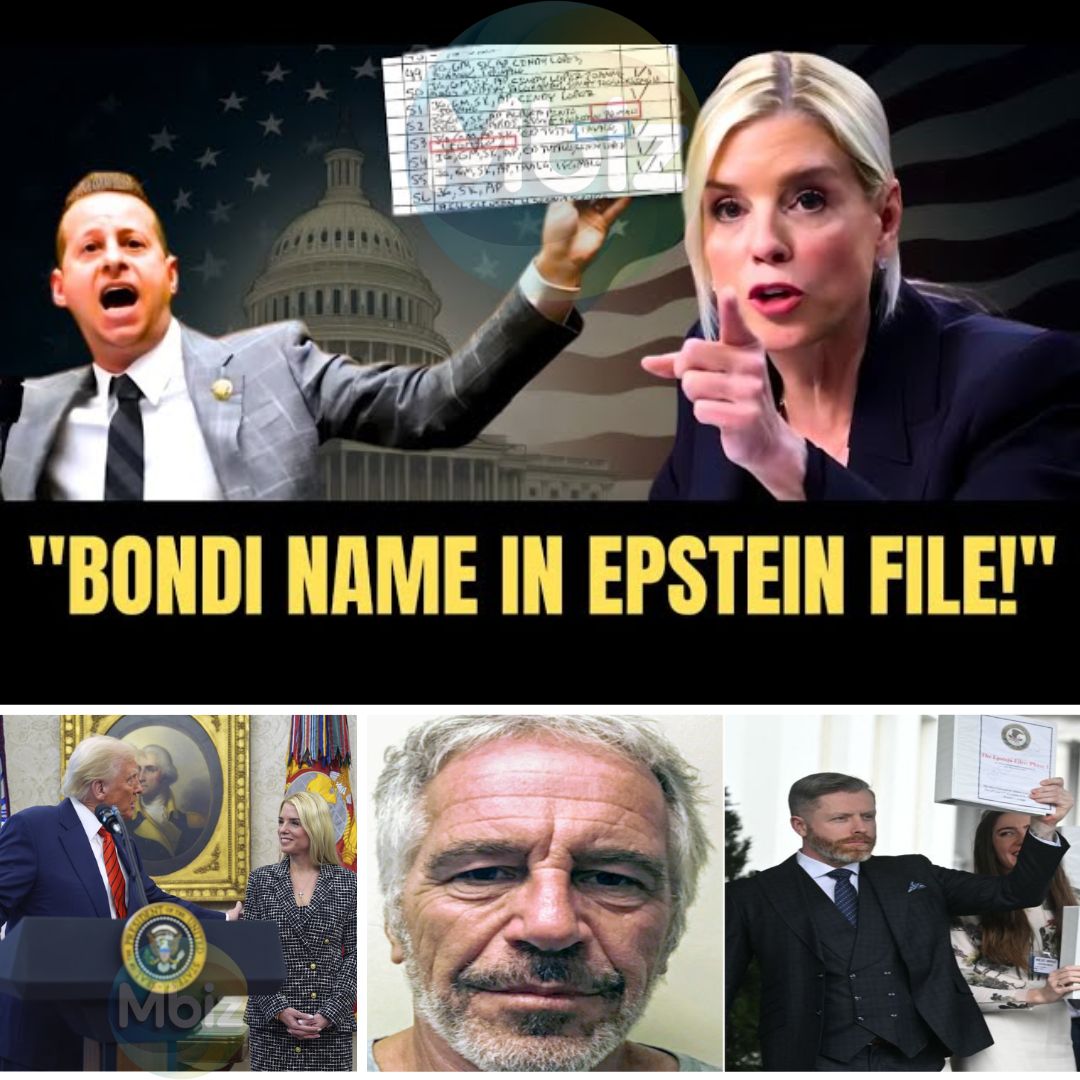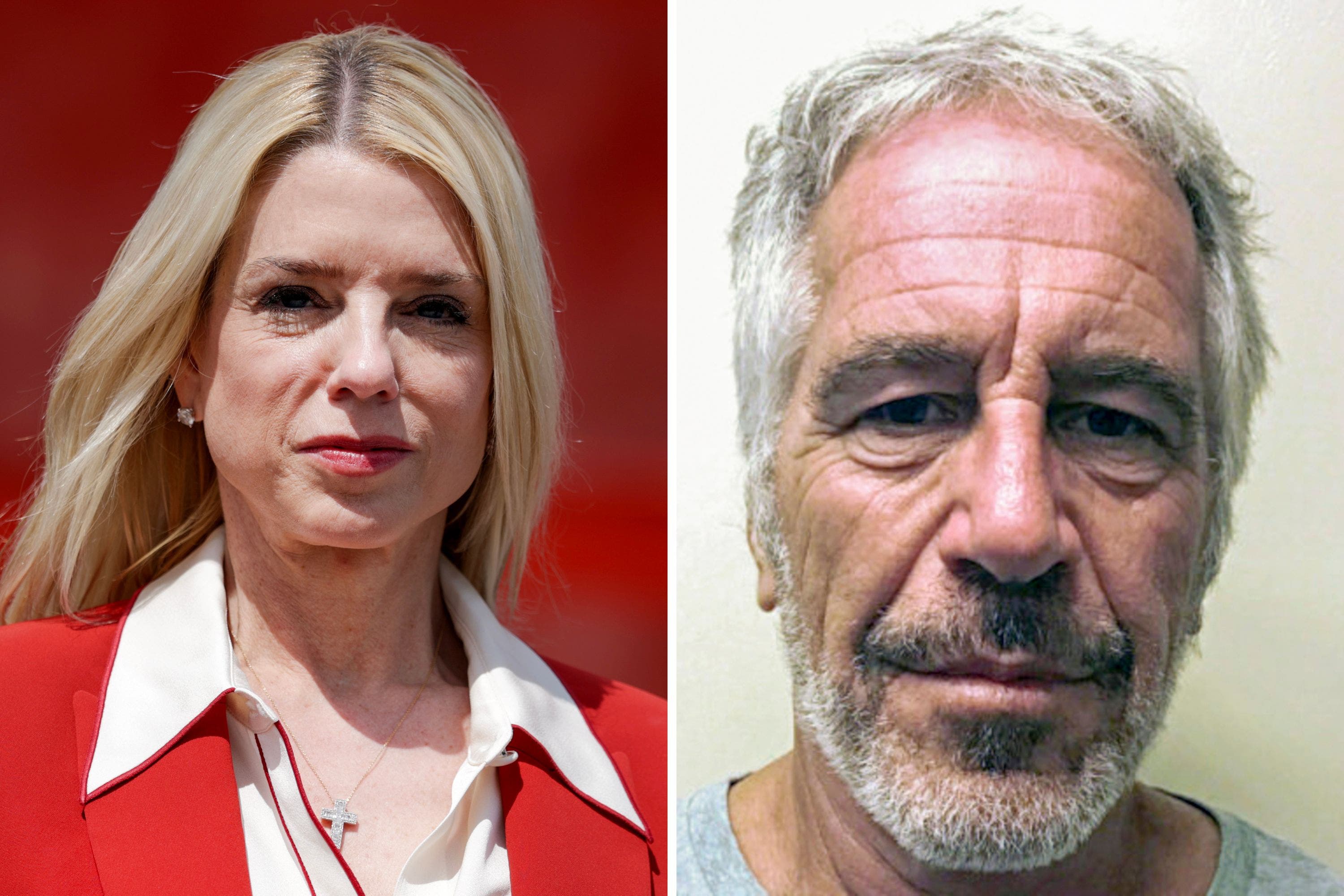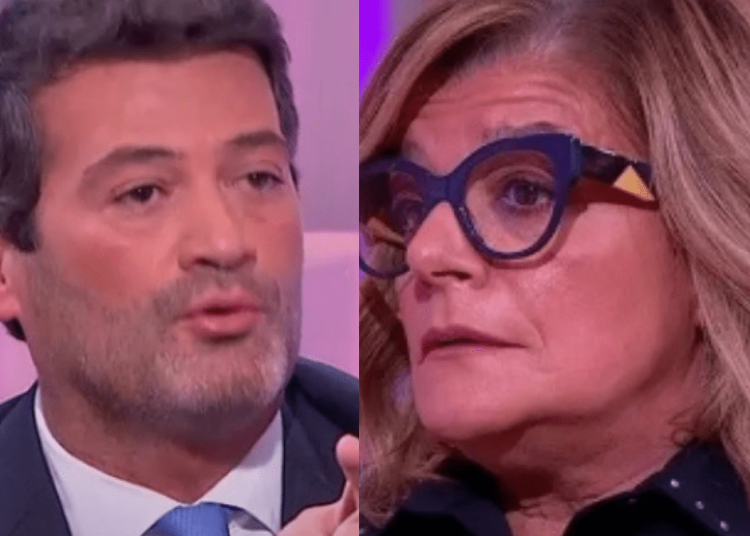In a stunning revelation during a congressional hearing, the mystery surrounding Pam Bondi’s purported “Epstein list” erupted into chaos, prompting urgent questions about transparency and accountability. Representative Jared Moscowitz’s probing inquiry into a witness’s connection to the president sent shockwaves through the chamber, exposing a web of contradictions that has left the public demanding answers.
 What began as a routine discussion about free speech quickly morphed into a tense examination of the Department of Justice’s handling of Epstein’s files. Bondi, the attorney general, claimed the infamous list was on her desk, only for the DOJ to promptly deny its existence. This contradiction has fueled speculation and distrust, especially as Republican influencers were seen flaunting binders labeled “part one of the Epstein files.” How could these exist if the list was merely a figment of imagination?
What began as a routine discussion about free speech quickly morphed into a tense examination of the Department of Justice’s handling of Epstein’s files. Bondi, the attorney general, claimed the infamous list was on her desk, only for the DOJ to promptly deny its existence. This contradiction has fueled speculation and distrust, especially as Republican influencers were seen flaunting binders labeled “part one of the Epstein files.” How could these exist if the list was merely a figment of imagination?
Moscowitz’s calm demeanor belied the urgency of his questions, each one cutting deeper into the heart of a narrative riddled with obfuscation. Why were key figures missing from hearings that should have been top priority? Why did the narrative shift so dramatically, with the White House labeling the release of Epstein’s files as a “hostile act”? The implications were staggering: a potential cover-up to protect powerful individuals at the expense of justice for victims of abuse.
As the hearing unfolded, the atmosphere grew heavier with each revelation. The DOJ’s promises of transparency seemed to evaporate, replaced by a series of delays and contradictory statements. Documents that were supposed to shed light on the Epstein case turned out to be largely public information, raising suspicions about the motives behind the staged release.
Then, in a shocking twist, reports emerged of a clandestine meeting between a deputy attorney general and Ghislaine Maxwell in prison, followed by her sudden transfer to a minimum-security facility. This development, shrouded in secrecy, has only intensified calls for clarity. Who authorized this meeting, and why was it never disclosed? The silence surrounding these actions raises alarm bells, suggesting a deliberate effort to conceal information from the public.

Moscowitz’s passionate plea for accountability resonated throughout the hearing room: “If these were your daughters, your sisters, your friends, would you still call this politics?” His challenge to lawmakers to prioritize truth over political convenience struck a chord, highlighting the frustrations of victims who have waited far too long for justice.
As the dust settles on this explosive hearing, one thing is clear: the American public is not willing to let this story fade into obscurity. The Epstein files, the conflicting statements, and the unanswered questions demand a thorough investigation. The call for a secure congressional briefing, independent oversight, and a transparent accounting of the events surrounding the Epstein case is more urgent than ever.
This is not just about one list or one hearing; it’s about restoring faith in a system that has repeatedly failed those it was meant to protect. The time for silence has passed. The truth must come to light, and the public will not be silenced until justice is served. As we move forward, it is crucial to keep the pressure on Congress and demand the accountability that survivors deserve. The fight for transparency is far from over, and every voice matters in this critical moment.





